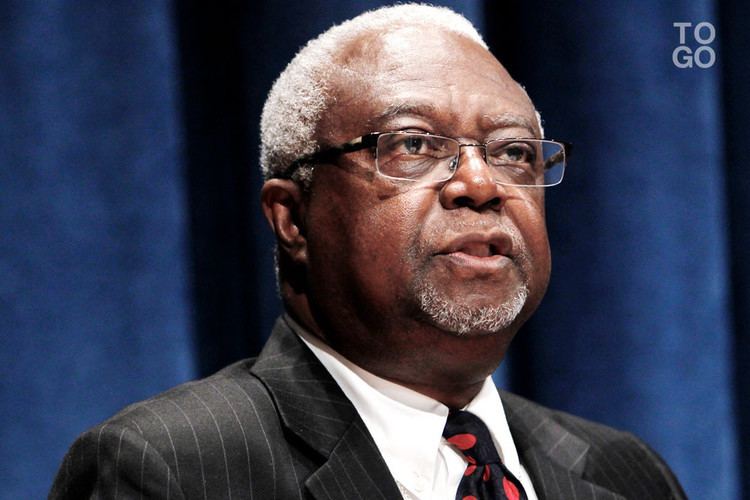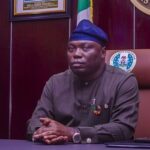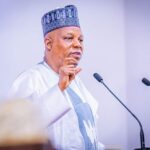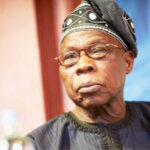Amos Claudius Sawyer Liberia’s interim President from 1990 until 1994 was undoubtedly one of West Africa’s most profound advocates of post-colonial representative government. In two major studies which he published in 1992 and 2005 he articulated his fundamental adherence to a vision of African nationalism as the foundation for establishing beneficial governance in Africa. He did so by examining the historical frontiers of the Liberian experience from the point of view of an objective but highly critical observer.
Sawyer hailed from Maryland in the south-eastern Sinoe County and belonged to a highly respected Americo-Liberian family. However, from very early in his life he was closely identified with the struggle to install social equity in the administration of the public affairs of Liberia. His first major intervention in the politics of the nation came when he ran a very active campaign as an independent candidate against the True Whig Party, which had dominated Liberian politics for a century, to be elected as the Mayor of Monrovia. Although he did not win the contest because the election was aborted by the government his public profile was greatly enhanced as a founding member of the radical Movement for Justice in Africa (MOJA) which was to inspire popular protests in the country. He was a founding member of The Liberian Peoples Party (LPP) which emerged out of MOJA’s activities.
Dr. Sawyer’s contribution to the welfare of his people was consolidated as he became a credible leader of the academic community after the military coup of 1980 when he was appointed Dean of the College of Social Sciences and Acting Director of the University of Liberia. In the period that followed although he attempted to engage in a transformative dialogue with the new rulers he was soon recognised as one of the most vocal opponents of the authoritarian tendencies of the military government. His new party the LPP was soon regarded as one of the main organs of opposition to military rule and a major advocate of democratic reform of the system of governance of the republic.
As a consequence of this perception of the concerns of the LPP Dr. Sawyer’s role as a supporter of the cooperative strategies of sub-regional collaboration among West African nations became well known. It was therefore hardly surprising that when ECOWAS became involved in brokering peace and restoring stability to the Liberian polity, after Charles Taylor’s insurgency led to a fullscale breakdown of law and order that resulted in the death of Samuel Doe, Amos Sawyer was selected as the interim leader who could stabilise the nation.
I first met Dr. Sawyer at that time and I was surprised at his modesty and genuine concern for the welfare of the ordinary citizens. When I met him in Monrovia his office was in a tiny suite in the Ducor Hotel that also served as his living quarters. At that time the Ducor was infested with rodents and cockroaches but he never complained, instead he seemed to have become accustomed to the discomforts of the situation. It turned out that he had read many of my reports in West Africa magazine over the years and had been anxious to meet me.
As we discussed the Liberian situation I was fascinated by his explanation of how he thought that the conflict could be resolved by discussion rather than through military action, and I discovered that his major objective was to return the nation to a democratic course. When I joked that at no time had Liberia really been a pure democracy he insisted that the true objectives of the founding fathers of the nation had never been achieved and that it was up to the modern leaders to do whatever it would take to achieve the original ideal, When I suggested that the Liberian Army should be overhauled and made more efficient in order to confront the rebel forces then his true anti-violent sentiments came to the fore when he explained that for him the efficiency of the official army should not be deployed to confront the insurgents but rather to maintain a stable society. At no time did he want to head a rival force of fighters, but he rather sought to restore a condition in which Liberians were not fighting themselves.
I travelled with Dr Sawyer to Cairo for the OAU Summit in 1993 and observed him interacting with the elite leadership of the continent. I noticed that in all his meetings he remained equally poised and humble. He was never ruffled and explained his country’s dilemma with a self-confident simplicity. Not long after we returned from the OAU meeting the Liberian conflict was once again the major issue on the agenda of ECOWAS and I disagreed with the status quo of resolutions that would lead to the installation of a Council of State made up of former warlords and their supporters to replace the interim government headed by Sawyer. His mild disposition. It seemed to me, was being taken advantage of as he agreed to step down from the interim Presidency in order to give the combatants a chance to rule. Of course that contraption was eventually to collapse and Charles Taylor eventually emerged as President. The hostility that I had predicted became the reality. Sawyer’s tenure as leader during the conflict could then be seen to have been the most hopeful formula of leadership that ECOWAS had managed to install.
In his later years as an advisor to subsequent leaders as the head of the Governance Reform Commission he maintained his equanimity and gentle approach to leadership based on consensus and compromise and the collaborative manipulation of power to the end. Dr. Amos Claudius Sawyer was always in search of peace whether in or out of office.
Lindsay Barrett wrote from Abuja

 Join Daily Trust WhatsApp Community For Quick Access To News and Happenings Around You.
Join Daily Trust WhatsApp Community For Quick Access To News and Happenings Around You.


